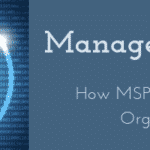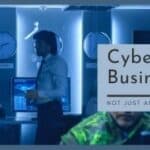The Work From Home Exodus
As COVID-19 continues to spread, many businesses are assessing how they can prioritize employee safety and still maintain regular business operations. One solution many businesses are turning to is recommending employees to work from home to avoid potential illnesses. To help ease the burden on businesses, many companies are providing free tools to help you work securely from home. They aren’t great tools and have their limitations, but will work in a pinch. A few have short term options like Zoom with their $15/mo and no contract.
With the huge increase in remote work, companies will have to adjust in various ways. These adjustments will help avoid cyber security risks or interruptions to business. Remote workers have different security controls and needs. Normal business security controls may be ineffective when employees head home. If they are using their personal equipment, they may not have the same controls, or any at all. Here are the all the things we normally recommend. They are fully supported by the Cyber security and Infrastructure Security Agency (CISA) and the CDC.
CISA’s Guidance
CISA released an alert to encourage organizations to adopt a heightened state of cyber security. According to the CISA, remote work options require a VPN solution to connect to a network. CISA encourages organizations to review the following recommendations when working securely from home:
- Update VPNs, network infrastructure devices, and devices being used to remote into work environments. Use the latest software patches and security configurations.
- Alert employees to an expected increase in phishing attempts.
- Ensure IT Policies get put into place or followed for: Telework, Remote Access, and Bring Your Own Device (BYOD).
- Implement Multi Factor Authentication
- Alert employees to contact IT to report incidents, phishing, malware, and other cybersecurity concerns.
CDC Guidance
The CDC has released some best practices where working securely from home is concerned:
- Review human resources policies. Be sure policies and practices are consistent with public health recommendations. Check that they are consistent with existing state and federal workplace laws.
- Explore whether you can establish policies and practices for flexible work sites and flexible work hours. Then, increase the physical distance among employees and between employees. Promote the use of social distancing strategies.
- For employees who are able to telework, supervisors should encourage employees to do so.
- Check with your IT provider to ensure that you have the technology and infrastructure needed.
3rd Element Guidance
In addition, we here at 3rd Element are recommending the following best practices and advice. It will help keep you secure through potential remote work scenarios.
- Use a Secure WiFi Network. Keep a strong password on your home WiFi. DO NOT use public WiFi. If you send your data through an unsecured WiFi connection, it’s not private. Cyber criminals can intercept your data. You ARE putting information at risk if you are accessing your email account or sending sensitive data over a public WiFi network.
- It’s essential to secure your network. Use a VPN (or the icon we have provided to you). Also, use strong passwords that aren’t easily cracked. Finally, always use multi factor authentication.
- Secure Your Home Workstation. Ensure you have fully patched and updated anti-virus and anti-malware software. It’s important to follow the same best practices you would as if you were in the office. Report any suspicious activity or concerns to 3rd Element. When something happens, we care about getting it corrected and secured first and foremost.
- Do not wait until the last day or hours before you need something to first start reporting it. Plan ahead.
As we move into the new normal, don’t hesitate to give us a call. You can always send an email. Or, if you miss us, hang out with us Fridays at 11am for training and networking. We’re in this together, even if we’re working securely from home.





